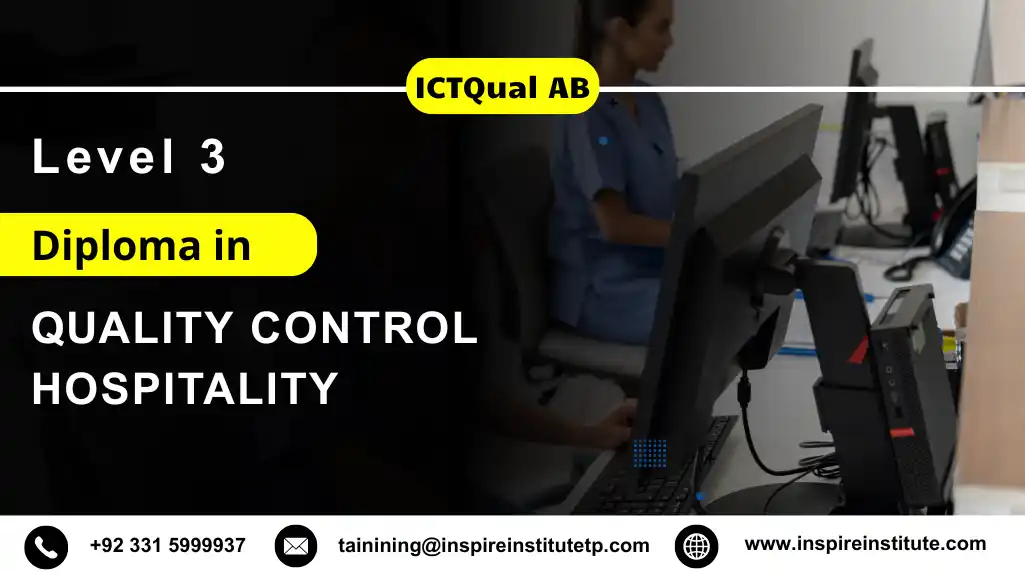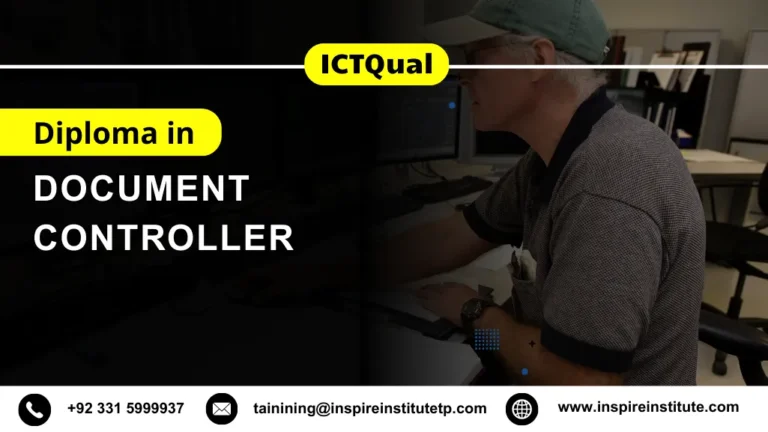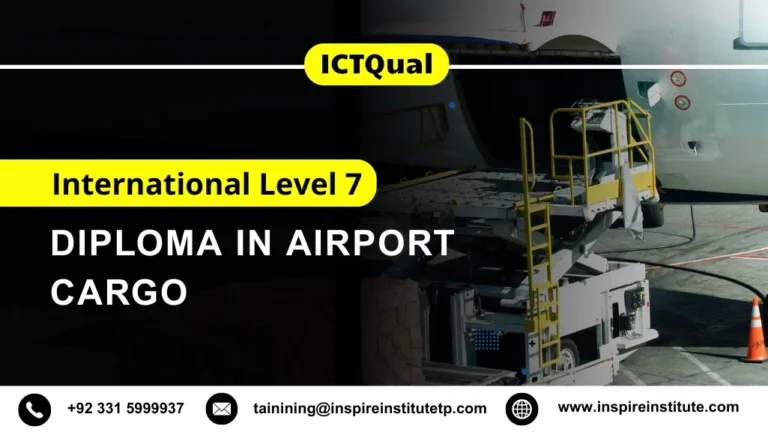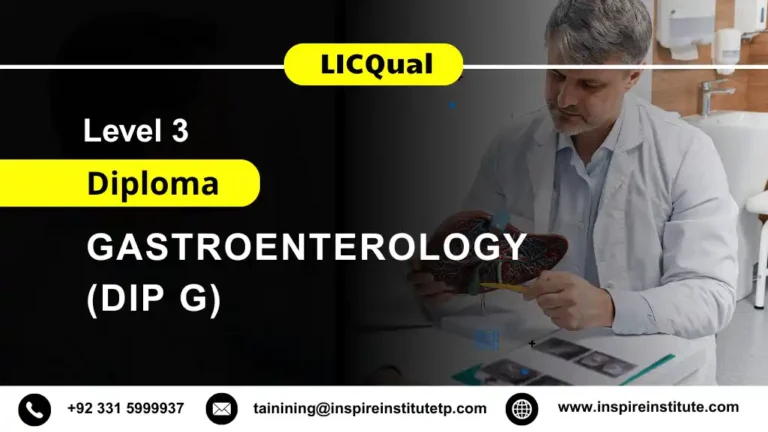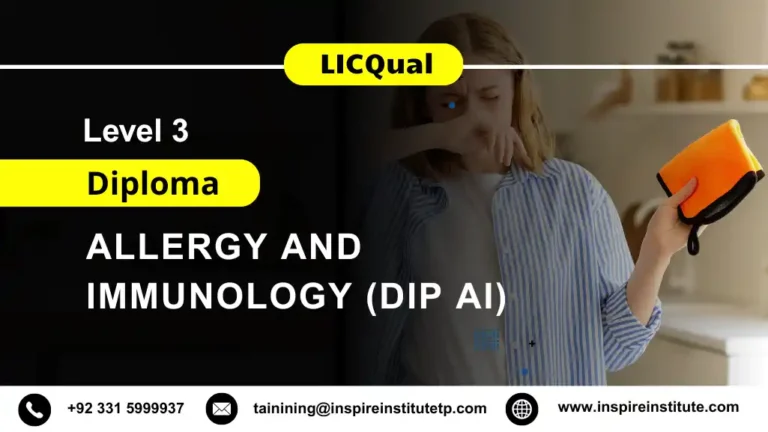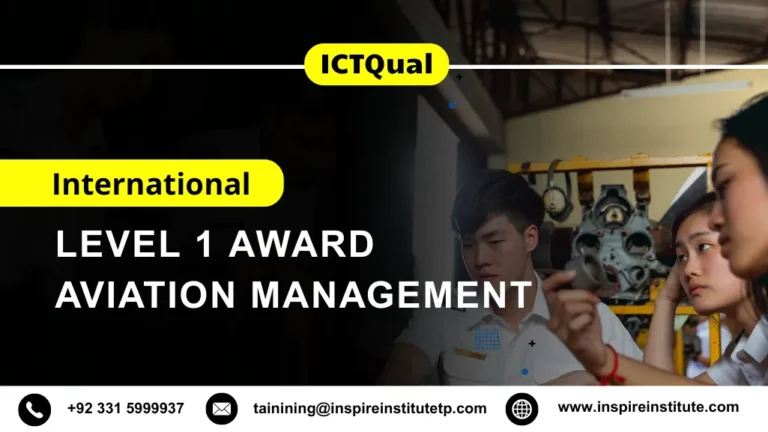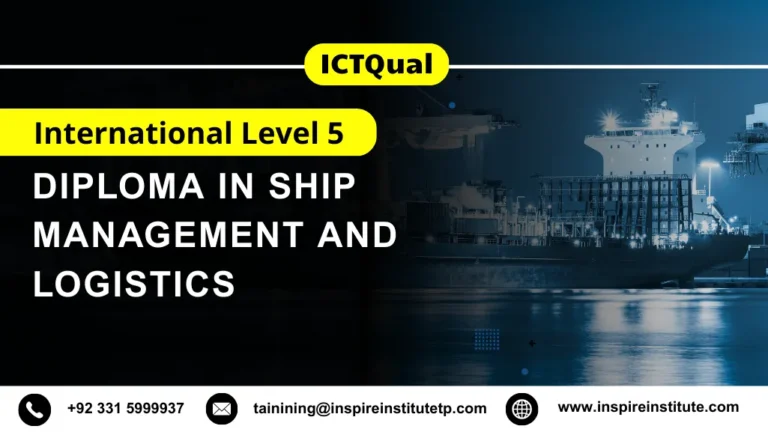ICTQual AB Level 3 Diploma in Quality Control Hospitality
The ICTQual AB Level 3 Diploma in Quality Control Hospitality is a nationally and internationally recognized qualification designed for individuals seeking to develop foundational knowledge and practical skills in quality control within the hospitality sector. This diploma covers critical aspects such as hygiene management, service quality monitoring, regulatory compliance, and basic auditing techniques, tailored specifically for hotels, restaurants, catering services, and other hospitality settings. Effective quality management leads to safer environments, happier guests, and stronger business reputations, making it a critical function in every hospitality establishment.
The ICTQual AB Level 3 Diploma in Quality Control Hospitality provides the foundation you need to succeed in this vital field. With its practical focus and recognized certification, you can start making an impact on service quality and operational excellence today. The hospitality industry thrives on delivering exceptional customer experiences, maintaining high hygiene standards, and ensuring smooth operations. For professionals starting their journey in hospitality quality control, the ICTQual AB Level 3 Diploma in Quality Control Hospitality offers a practical and industry-focused qualification that equips learners with essential skills to uphold service excellence.
Why Choose this Qualification
Choosing the right qualification is key to building a successful career in hospitality quality control. Here’s why the ICTQual AB Level 3 Diploma stands out:
- Practical Industry Focus: This diploma offers hands-on learning tailored specifically to quality control practices in the hospitality sector, ensuring you gain relevant and actionable skills.
- Recognized Certification: The qualification is nationally and internationally recognized, boosting your credibility with employers and enhancing your job prospects.
- Career Entry and Progression: Ideal for those starting in hospitality or quality control roles, this diploma provides a solid foundation for further career development and higher-level studies.
- Flexible Learning Options: Many providers offer online and blended learning formats, allowing you to study while balancing work or other commitments.
- Improved Employability: Demonstrate your commitment to quality and service excellence, making you a valuable candidate for entry-level supervisory and quality roles.
- Pathway to Advanced Qualifications: This Level 3 diploma is a stepping stone to Level 4 and Level 5 hospitality and quality management certifications.
By choosing the ICTQual AB Level 3 Diploma in Quality Control Hospitality, you invest in a qualification that equips you with essential skills to maintain high standards and advance in the dynamic hospitality industry.
Course Overview
Awarding body : ICTQual AB
Course Level: 3
Credits : 30
Study Units: 6 Units
Evidence & Assignment Based
Qualification Structure
This qualification, the ICTQual AB Level 3 Diploma in Quality Control Hospitality, consists of 6 mandatory units.
- Quality Management Systems in Hospitality
- Food Safety and Quality Standards
- Service Quality Monitoring and Guest Satisfaction
- Workplace Safety and Risk Control in Hospitality
- Documentation and Compliance Audits
- Customer Relationship and Complaint Management
Who Should Take This Course
Building a strong foundation with the right qualification is essential for success in hospitality quality control. Here’s why the ICTQual AB Level 3 Diploma in Quality Control Hospitality is the ideal choice:
- Entry-Level Hospitality Workers: Perfect for those starting their career who want to gain foundational knowledge and skills in quality control within hospitality settings.
- Supervisors and Team Leaders: Ideal for hospitality staff looking to enhance their ability to maintain hygiene, safety, and service standards while taking on more responsibility.
- Career Changers: Suitable for individuals transitioning into the hospitality sector who seek a recognized qualification to boost their employability.
- Hospitality Assistants and Support Staff: Those responsible for daily operations and customer service can benefit from practical skills to improve quality and compliance.
- Learners Seeking Flexible Study Options: This diploma is available through online and blended learning formats, enabling you to study while balancing work or personal commitments.
- Ambitious Professionals: Those aiming to progress to higher-level quality management roles will find this diploma provides a solid stepping stone toward advanced qualifications.
Choosing the ICTQual AB Level 3 Diploma in Quality Control Hospitality means investing in your future by developing the skills and certification needed to excel in a fast-growing and competitive industry.
Course Benefits
Enrolling in the ICTQual AB Level 3 Diploma in Quality Control Hospitality offers numerous advantages that support your professional growth and career advancement:
- Industry-Relevant Skills: Gain practical knowledge tailored specifically to quality control in hospitality, including hygiene management, service monitoring, and compliance.
- Recognized Qualification: This diploma is nationally and internationally accredited, enhancing your credibility and employability across the hospitality sector.
- Career Readiness: Equip yourself with the skills needed for entry-level supervisory and quality control roles, helping you stand out to employers.
- Flexible Learning: Many providers offer online and blended study options, allowing you to balance your education with work or personal commitments.
- Pathway to Further Study: This diploma serves as a foundation for progressing to higher-level qualifications in hospitality management and quality assurance.
- Enhanced Operational Knowledge: Learn how to improve service delivery and maintain consistent standards that boost customer satisfaction.
- Improved Confidence and Leadership: Develop the ability to contribute to quality improvements and take on greater responsibilities within your workplace.
By choosing this diploma, you invest in a qualification that equips you with essential skills and opens doors to exciting career opportunities in the dynamic hospitality industry.
Eligibility Criteria
To enroll in the ICTQual AB Level 3 Diploma in Quality Control Hospitality, candidates should meet the following requirements:
Minimum Age
Applicants must be at least 16 years old.
Educational Background
A basic educational qualification equivalent to Level 2 (such as GCSEs or equivalent) is recommended but not mandatory.
Work Experience
No prior work experience is required; however, experience in hospitality or customer service can be beneficial.
Language Proficiency
Basic proficiency in English is essential to understand course materials, participate in assessments, and communicate effectively.
Technical Skills
Familiarity with fundamental hospitality operations and basic quality control principles is advantageous but not compulsory.
The Qualification Process
The ICTQual AB Level 3 Diploma in Quality Control Hospitality follows a structured and learner-friendly qualification process that blends academic study with real-world coaching skills. The process is designed to develop competent, ethical, and client-focused health coaches who are capable of supporting others in achieving sustainable lifestyle changes. Below is an overview of the key stages in the qualification journey:
• Admission and Enrolment
Learners begin by applying through an approved ICTQual AB training provider, where they must:
• Submit proof of identity and academic qualifications (typically Level 3 or equivalent)
• Demonstrate proficiency in English (e.g., IELTS 5.5 or equivalent)
• Complete a personal statement or interview (where required) to assess interest in health and wellness coaching
Once approved, learners are formally enrolled and given access to course resources.
• Course Orientation
New learners receive a full orientation that includes:
• An introduction to the course structure, units, and learning outcomes
• Guidelines on assignments, deadlines, and tutor support
• Information about coaching practice expectations and ethical conduct
• Programme Delivery
The course is delivered through a flexible format, which may include:
• Online, blended, or classroom-based learning
• Interactive webinars and tutorials
• Independent reading and research
• Practical exercises and case studies
This delivery style supports learners in balancing their studies with work or personal commitments.
• Core Areas of Study
Learners explore a broad and practice-driven curriculum, including:
• Foundations of health coaching and behaviour change
• Goal setting and action planning
• Motivational interviewing and communication strategies
• Health promotion and wellness concepts
• Coaching ethics and professional boundaries
• Reflective practice and personal development
• Coaching Practice
Though not always mandatory, learners are encouraged to:
• Apply coaching tools in real or simulated sessions
• Record and reflect on client progress
• Gather feedback to improve coaching performance
Some training centres may also include practical assessments, role-plays, or coaching portfolios.
• Assignments and Assessments
Assessment is based entirely on coursework. Learners are required to:
• Complete written assignments, reflective journals, and coaching session plans
• Submit case studies and progress reports
• Demonstrate understanding of theory through practical application
• Present evidence of learning in a structured portfolio
• Tutor Support and Feedback
Throughout the course, learners benefit from:
• One-on-one academic guidance
• Regular tutor feedback on assignments
• Coaching supervision or mentorship (depending on provider)
• Access to learning platforms and study materials
• Internal and External Quality Assurance
All assessments are:
• Internally verified by the training provider
• Externally quality-assured by ICTQual AB to ensure fair grading and regulatory compliance
This two-tier system maintains the academic integrity and credibility of the qualification.
• Certification
Upon successful completion of all course units and submission of required evidence, learners are awarded the ICTQual AB Level 3 Diploma in Quality Control Hospitality.
• Post-Qualification Progression
Graduates of this diploma can:
• Begin or advance a career as a Quality Control Hospitality
• Work in private practice, community health programmes, or corporate wellness
• Progress to higher-level coaching or health-related qualifications
• Seek accreditation with national or international coaching bodies (subject to additional requirements)
This structured process ensures learners graduate with the practical confidence, professional standards, and academic grounding needed to thrive as ethical and effective health practitioners in a growing global wellness industry.

